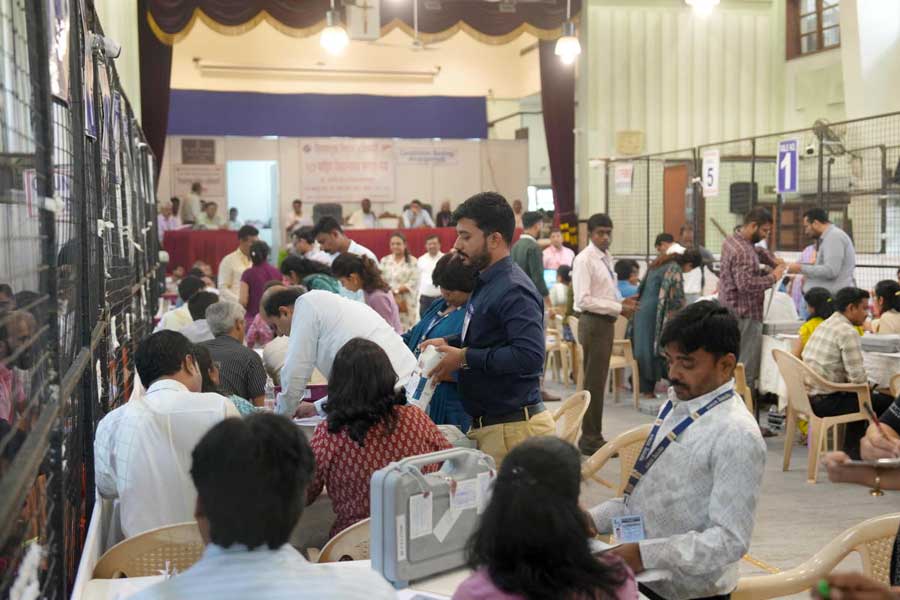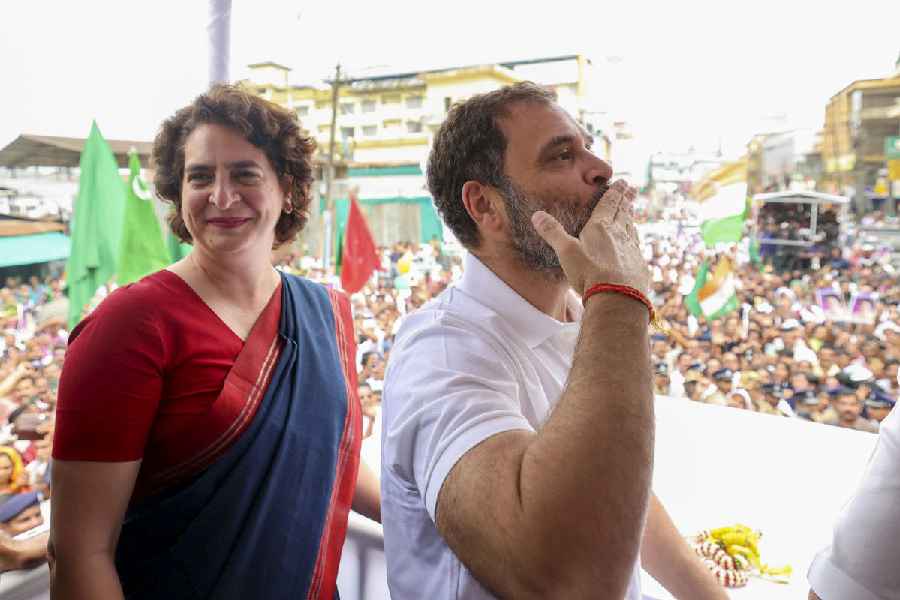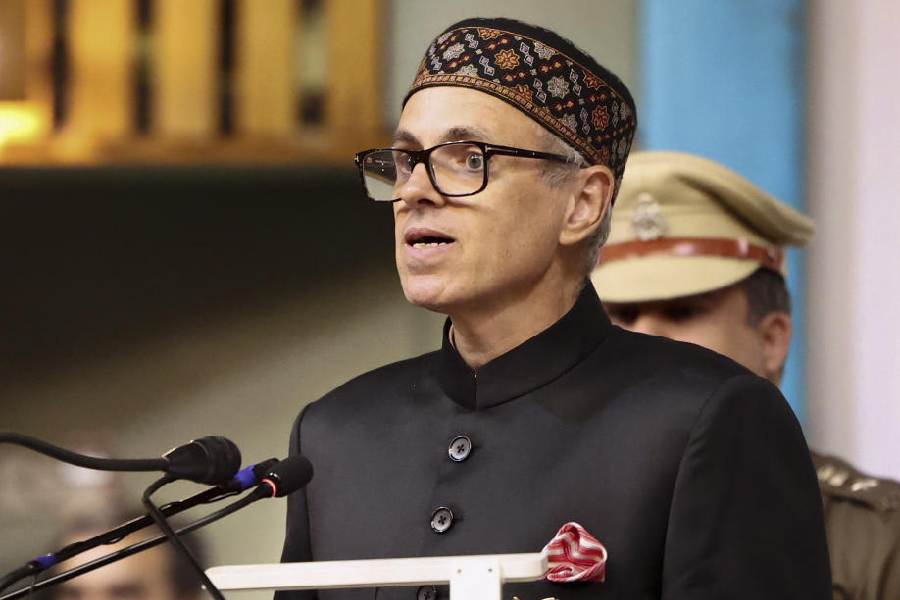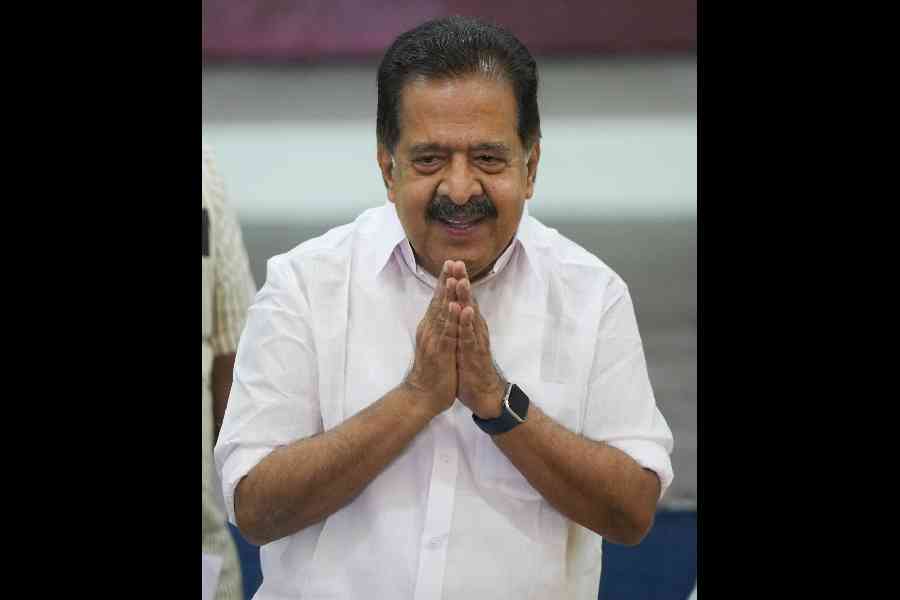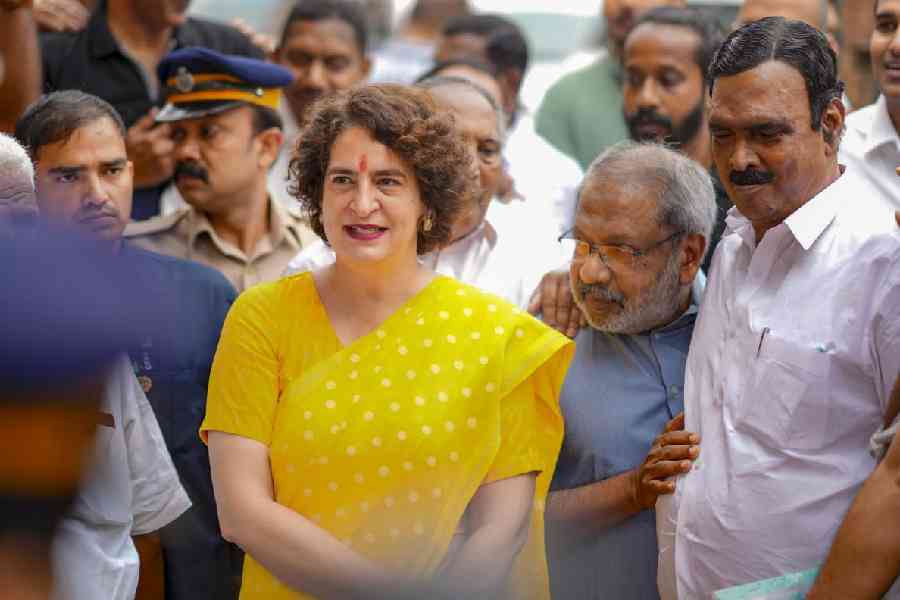Each hand had a story to tell.
A group of students with disabilities used their hands to make imprints on paper, coloured them and stitched a story around the painting at an art workshop.
The students with intellectual disabilities, autism and cerebral palsy worked in groups under a mentor at Manovikas Kendra on Tuesday.
The workshop was not about who was creating the best piece of art but about raising awareness and reiterating that every individual with or without disability has equal rights to participate, experience and create an artwork to express one’s thoughts.
Anurag Daschowdhury, a student of Manovikas Kendra, and his friends depicted life under the sea with the image of a shark trying to gobble up a starfish.
“We first made the outlines with our hands and then depending on how each hand looked like, we fashioned a creature out of it,” Anurag said.
Another group of students portrayed a monsoon scene with a peacock and a frog. One of the students in the group came up with the idea of using his thumb to make raindrops fall from the sky.
The workshop was part of an accessible outreach initiative of the Kolkata Centre for Creativity, an art centre, on the occasion of the International Day of Persons with Disabilities.
The students of Manovikas Kendra aged 10 to 18 were given some instructions but also the freedom to draw as they wanted.
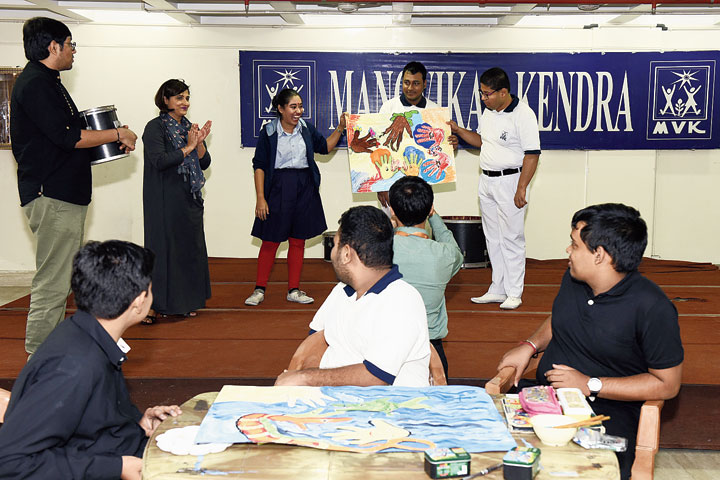
The students tell stories they spun around the paintings Sanat Kr Sinha
“The idea was to tell the students that we all think differently and that it is alright to be different. Individuals with disabilities are under constant societal pressure, which make them believe that being different is a negative thing. It is important for them to realise that it is not wrong to be different and that they have different abilities,” said Siddhant Shah, heritage architect and KCC’s accessibility consultant and founder of Access for All, an initiative to bridge the gap between cultural heritage and disability.
Those working with individuals with disabilities said they often have hidden potential but the community has to be sensitised to recognise their talent.
“Everyone wants to be included. The art workshop is significant because many of our students cannot communicate their feelings and emotions, but given a crayon or a brush, they can express themselves, connect with others and feel accepted,” said Anamika Sinha, the director of Manovikas Kendra.
Participants at another workshop for visually impaired persons were given tactile materials such as textured paper, ropes and beads to feel and make artwork.
“Accessibility and inclusion are about using all the senses. We have tried to achieve that through these workshops. One won’t understand what the other person is going through unless they step into their shoes,” Shah said.
The workshops also included those working at the art centre to help them reach out to, interact with and understand the challenges individuals with disabilities face.
“We have a team of people from different backgrounds to sensitise them towards people with different abilities because we want to create an inclusive space where we can welcome everybody,” said Reena Dewan, associate vice-president of KCC.





